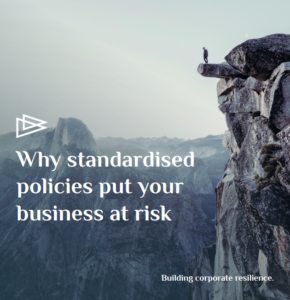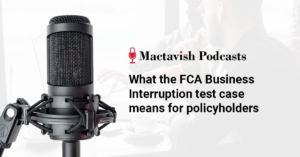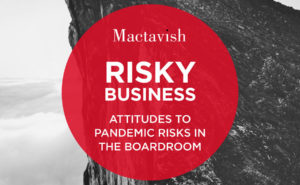
Most companies in the UK have spent the last week or so managing the first stages of crisis response, dealing with the circumstances in front of them and adapting to the new world in which we operate.
For those with responsibility for risk and insurance, this has been a particularly testing time. Remote working, repatriation, supply chain dislocation and a great many more issues have all been at the top of the agenda. The insurance implications of all this are considerable and we’ve shared our perspective on what to look out for in this recent post.
As we move to the next phase of responses to the pandemic, our team will continue to publish advice and tips on how to handle the challenges that we see in our day to day work. In this post we focus on the impact of claims made against companies by their employees and shareholders.
Directors and Officers Insurance (D&O):
Investors and third parties represent a significant potential source of claims. Two potential allegations that could lead to claims are: failure to prepare in line with industry peers and failure to adapt to the changing circumstances and regulatory environment. Claims could arise if management actions (or inaction) result in, for example, illness and injury or a loss of shareholder value.
D&O is a particularly complex class of insurance and the reliance on standardised wordings may have far reaching consequences – in particular, broad exclusions for bodily injury and mental anguish may leave many businesses without coverage in a crucial area. We recommend you check your policy for this sort of detail as a matter of urgency.
It is inevitable that some companies will need to issue profit warnings or seek to bolster their position through more drastic action such as layoffs of employees or suspension of dividend payments as Covid 19 continues to undermine expected performance. The company may be able to recoup public relations costs, advisor fees or other related expenses through crisis cost cover often provided under D&O insurance. This policy extension usually has immediate notification requirements, and costs may only be covered if insurer consent is obtained beforehand, so we recommend you check your policy if this is an area of potential cost for the business.
Beyond this, notifications can be especially complex for D&O policies with a complex web of thresholds and potential prior circumstances exclusions to navigate. Staying on top of this in a way that allows you to respond confidently to Directors’ requests for clarity will remain a challenge in the weeks ahead. Again, we’d recommend that you review that policy now.
Employers’ Liability (EL):
One of the most obvious potential sources of claims is from employees who believe they have been put at risk as a result of their work.
Claims would likely focus on employer negligence, such as failure to provide protective equipment or failure to change operational practices to reflect the risk of contracting a highly communicable disease. It’s important to note that whilst EL cover is statutory, meaning that settlement to the employee is unlikely to be problematic, the insurer may then seek to recoup the pay out from the employer.
In practice, firms should focus on staying abreast of, and reacting quickly to, government advice in the jurisdictions in which the employees are operating. Since the situation is changing so rapidly this, in itself, is no easy task, but it is essential as failure to do so may result in both individual claims and class actions.
Our solutions:
As ever, the Mactavish team is on hand to offer expert and guidance on a range of insurance and risks challenges. Whether you’re struggling to work out how your coverage relates to the changes in your business, working towards a painful renewal, trying to get a claim settled or are simply drowning in internal requests for information and guidance, we are here to help throughout the crisis.










